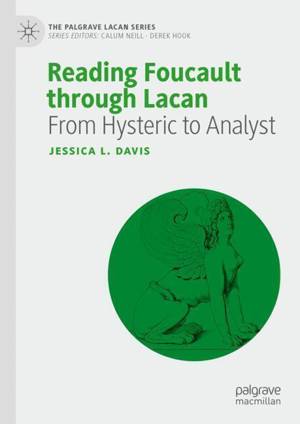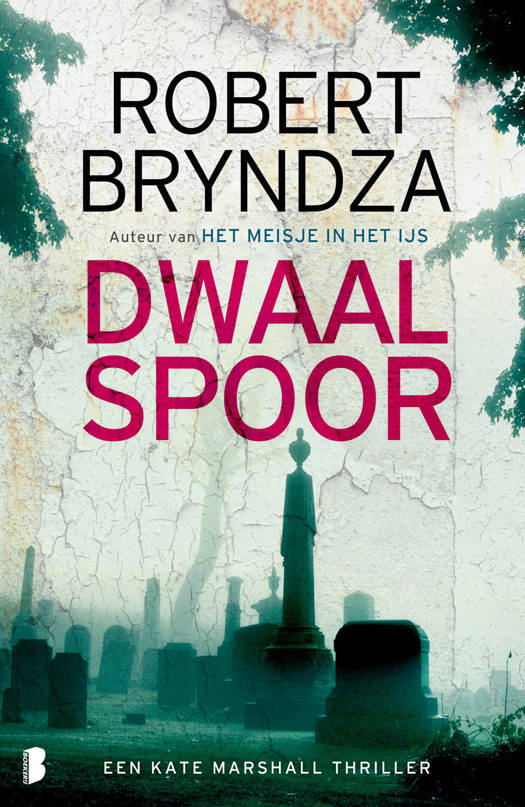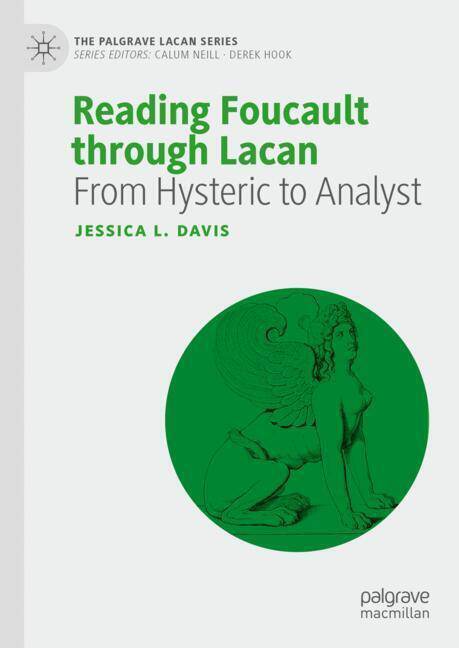
- Afhalen na 1 uur in een winkel met voorraad
- Gratis thuislevering in België vanaf € 30
- Ruim aanbod met 7 miljoen producten
- Afhalen na 1 uur in een winkel met voorraad
- Gratis thuislevering in België vanaf € 30
- Ruim aanbod met 7 miljoen producten
Omschrijving
This book offers an explorative analysis of the intersections between Jacques Lacan and Michel Foucault that challenges the prevailing notion of incompatibility between their intellectual projects. It proposes an interpretive framework that aligns Foucault's relationship to Kantian critique with Lacan's theory of the four discourses from Seminar XVII: The Other Side of Psychoanalysis (1969-70). Exploring multiple periods of each thinker's work, the book examines how the conceptual trajectories represented by Foucault and Lacan might be effectively combined to advance a new form of Foucauldian-Lacanianism.
The book is divided into two parts. Part I, "The Hysteric," introduces a novel interpretation of Foucault's genealogical method in the early to mid-1970s. Drawing on Lacan's schema of the Hysteric's discourse, it understands hysteria as a mode of address within which Foucault's critical historiography can be situated. This perspective positions Foucault as a discoursing subject, challenging the uncontested remnants of Kant's transcendental legacy. Part II, "The Analyst," offers a retrospective of Foucault's earlier work through a consideration of Lacan's claim that analytic experience begins with the hystericiziation of discourse. It examines the period between 1979-1984, analyzing significant modifications and shifts in Foucault's work including his reconceptualization of critique. Part II interprets Foucault's re-alignment with Kant's critical legacy as retroactively constituting the conditions of transformation from the Hysteric to the Analyst's discourse.
Using newly available English translations of Foucault's lectures and Lacan's seminars, the book offers a novel rereading of Foucault's genealogical method, his relation to Kantian critique, and psychoanalysis. It provides fresh insights for students and scholars of psychoanalysis, philosophy, and critical theory.
Specificaties
Betrokkenen
- Auteur(s):
- Uitgeverij:
Inhoud
- Aantal bladzijden:
- 255
- Taal:
- Engels
- Reeks:
Eigenschappen
- Productcode (EAN):
- 9783031697371
- Verschijningsdatum:
- 28/12/2024
- Uitvoering:
- Hardcover
- Formaat:
- Genaaid
- Afmetingen:
- 148 mm x 210 mm

Alleen bij Standaard Boekhandel
Beoordelingen
We publiceren alleen reviews die voldoen aan de voorwaarden voor reviews. Bekijk onze voorwaarden voor reviews.













